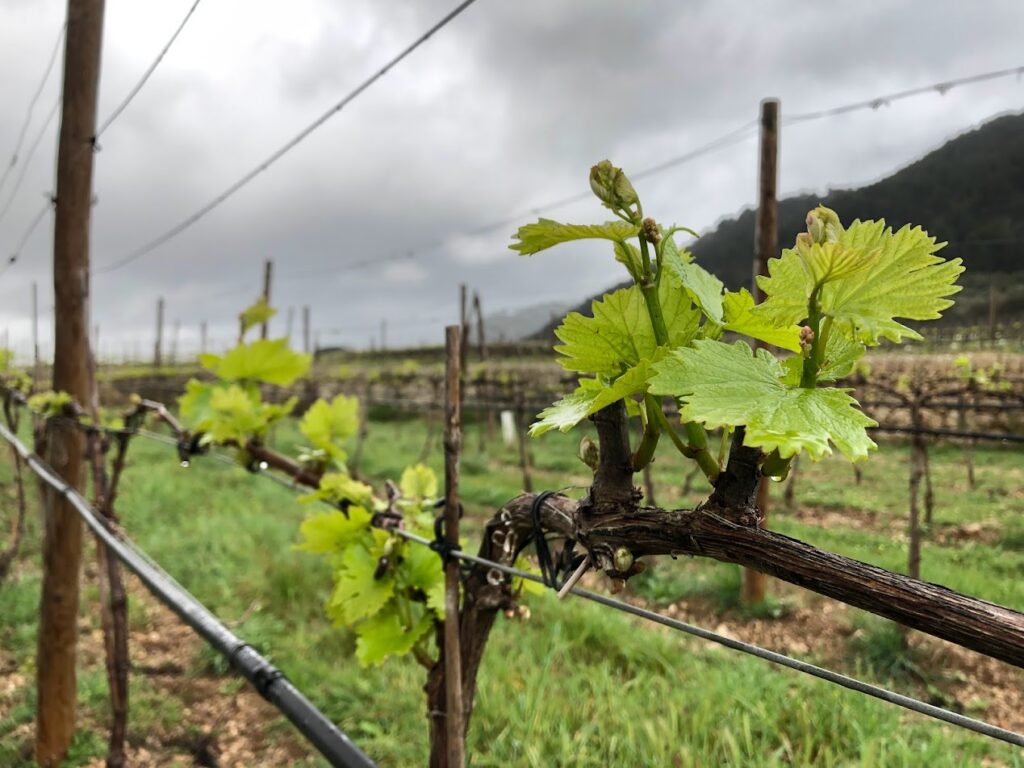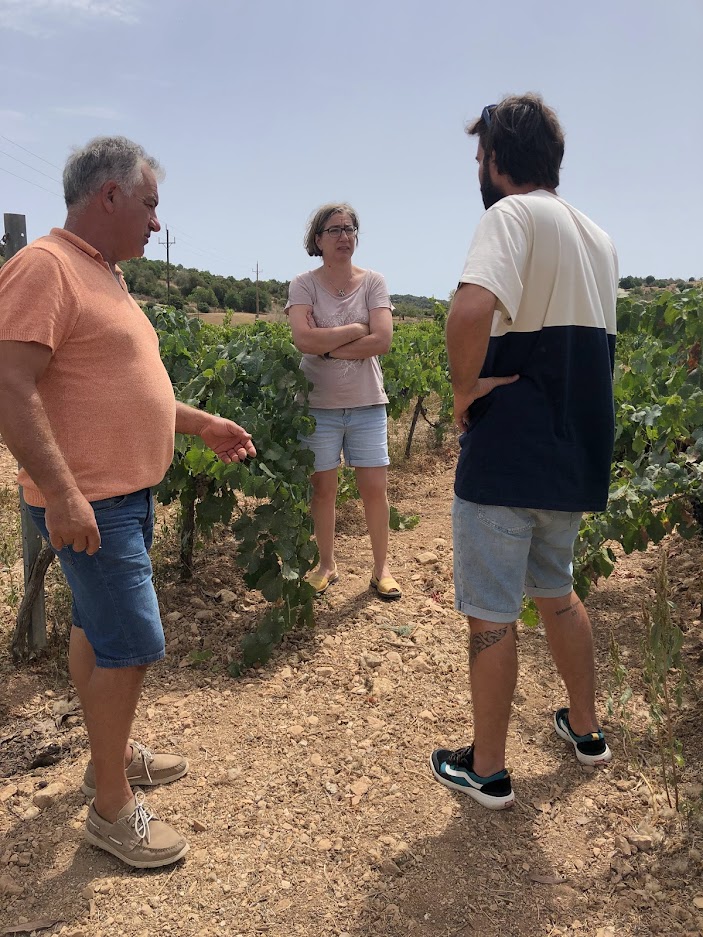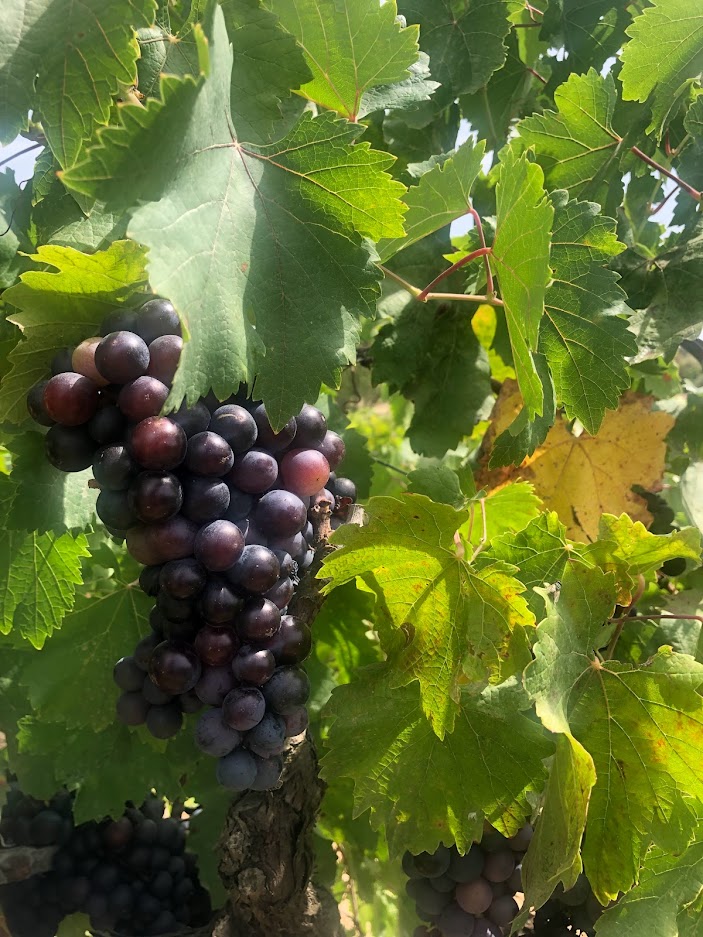
Mallorca is the jewel of the Mediterranean, its captivating landscapes and crystal-clear waters are breathtaking. But have you discovered their distinct and delightful wines? At the heart of this region’s winemaking lies the centuries-old tradition of cultivating indigenous Mallorcan grapes varieties. In this blog post, we embark on a journey to explore Mallorca’s native grapes, both red and white, unveiling the enigmatic qualities that make these wines truly exceptional.
Distinctive grapes give rise to exceptional wines. When we savor a familiar varietal like Sauvignon Blanc or Chardonnay, we usually have preconceived expectations. We possess a reference point. However, when we encounter a varietal that’s entirely new to us, we undergo a new experience. This is the uniqueness we find in the indigenous grapes of Mallorca. They’ve stood the test of time, adapting to Mallorca’s unique climate and soil conditions over centuries, resulting in flavors that exude the island’s distinct character.
When you factor all this in, their uniqueness is reflected in the value and price of these wines.

INDIGENOUS RED GRAPES
Mantonegro: These indigenous mallorcan grapes is a deep red color, with fruity aromas with notes of red berries and cherries. It has a balanced acidity. Mantonegro makes great food-friendly wines that come in a variety of styles: from oaky powerful blends to more subtle monovarietal expressions. Mantonegro grows all over the island and especially in the D.O. (Denominación de Origen) of Binissalem.
Callet: Callet grows vigorously on the island, it produces lots of bunches with big juicy grapes. The bigger the grape, the softer the tannins. Callet produces medium-bodied wines with bright acidity and a soft tannin structure. They have notes of red fruits such as strawberries and raspberries, as well as hints of floral and herbal aromas. These indigenous mallorcan grapes shot to fame thanks to Anima Negra‘s Son Negre wine and Robert Parker‘s high ratings.
Fogoneu: Fogoneu is complex and ages gracefully. Virtually only found in blends, Fogoneu grapes produce wines with a complex flavor profile, often featuring earthy, herbal, and spicy notes.
Gorgollasa: Gorgollasa has a fine balance of fruitiness, acidity, and a refined structure. The flavors often include delightful notes of raspberries and cherries, making it a delightful choice for wine lovers seeking a fresh and approachable red. You can find some monovarietal examples if you look hard enough.

WHITE GRAPES
Mallorca’s indigenous white grape varieties are equally important in the island’s winemaking story. They contribute their own distinct characteristics to create exceptional white wines.
Giró Ros: Known for its fresh, peachy floral aromas and bright acidity, it’s a popular choice for crafting refreshing and aromatic white wines. The hardy white grape turns a reddish orange hue towards the end of its maturation. As a result, Giró Ros makes tinted golden medium-bodied wines with balanced acidity and rich texture. They often have notes of tropical fruits such as pineapple and mango, as well as hints of honey and nuts.
Prensal Blanc: Known as Moll in Binissalem. This grape is versatile and produces crisp, citrus-infused wines, perfect for warm Mediterranean evenings. Prensal Blanc produces high acid wines with floral aromas. Prensal Blanc produces wines that are light-bodied, crisp and refreshing. They often have notes of citrus fruits such as lemon and grapefruit, as well as hints of green apples and minerals.
Malvasía de Banyalbufar: Malvasía is an especially rare and prized grape variety. As a result known for producing both dry aromatic wines and rich and luscious dessert wines with notes of honey and apricot. It went almost extinct, but has been recovered thanks to conservation efforts.
A Toast to Indigenous Mallorcan Grapes and Unique Winemaking Heritage
Mallorca’s indigenous grapes, both red and white, are a testament to the island’s rich winemaking heritage. Each grape variety brings its unique character, contributing to the creation of wines that capture the essence of this island.
Elevate your wine tasting journey by savoring the indigenous mallorcan grapes we’ve explored in our blog post. I host curated meals and wine tastings at our apartment with stunning sea and mountain rooftopviews. Whether you’re a wine enthusiast or a curious explorer, our private rooftop wine tastings offer a piece of Mallorca’s history and culture in every sip.
The cultivation of autochthonous grapes is connected to the local communities and their way of life. The vineyards pass down from generation to generation, and the grapes grow using sustainable and traditional methods. Moreover, this not only preserves the local heritage but also supports the local economy and creates employment opportunities.
These Mallorcan wines are increasingly popular among wine enthusiasts and critics because of their unique flavor profiles and their connection to the island’s history and culture. Today, there are many wineries in Mallorca that specialize in producing wines made from autochthonous grapes. Today, these grapes are used to make a wide variety of delicious and unique wines, which are becoming increasingly popular among wine enthusiasts and critics.

